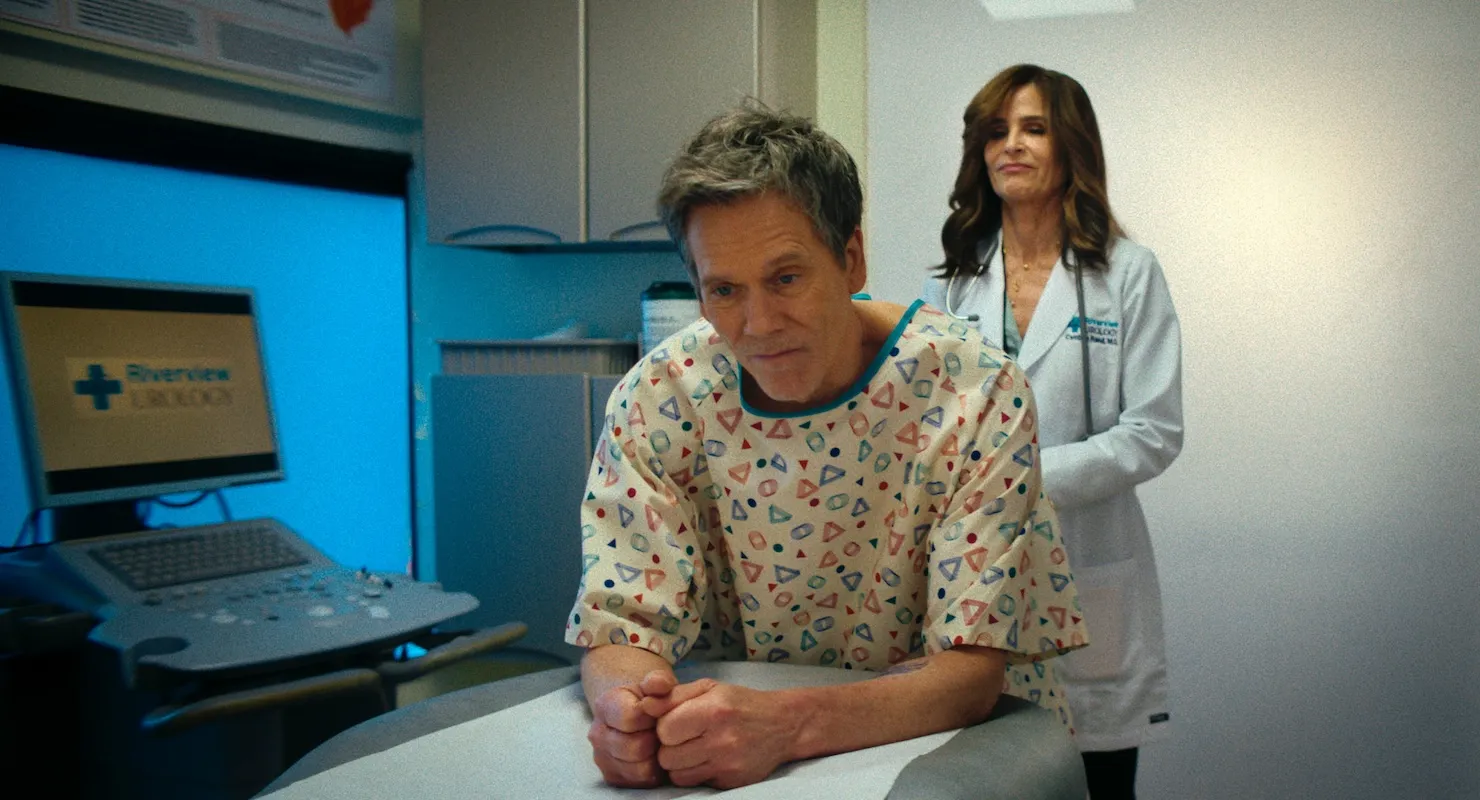Every so often, a story appears that feels like a quiet, narrative-driven indie title. It’s not about grand spectacle, but about the small, intricate mechanics of human connection. The Best You Can is one such story. We first meet Cynthia, a urologist whose life has become a dedicated mission to care for her husband, Warren.
He is a brilliant man, a former legal mind from the Watergate era, now drifting into the fog of dementia. Her love for him is palpable, but so is the quiet hum of her own life being put on hold. Elsewhere in the city, there is Stan, a security guard whose own life map feels incomplete. He’s an underachiever wrestling with a disconnected relationship with his musician daughter, Sammi.
These two characters are on entirely separate paths until a late-night alarm at Cynthia’s house acts as a catalyst, forcing their stories to intersect. This is not a tale of heroes, but of two people at a difficult checkpoint, contemplating what it means to find a new objective when you thought the game was almost over.
The Potent Chemistry of the Core Loop
The film’s central relationship begins with a device so perfectly awkward it could be a puzzle in a point-and-click adventure: Stan, responding to the alarm, desperately needs a bathroom, and Cynthia happens to be a urologist who can diagnose his prostate problem.
It’s a contrived setup, yet the film leans into it, and it works almost entirely because of the actors. Kevin Bacon and Kyra Sedgwick possess a powerful, lived-in chemistry that feels less like a performance and more like watching a natural system at work. Their connection deepens through a modern narrative mechanic: the text message conversation.
Like dialogue choices in a game that reveal a character’s true self, these late-night texts allow Cynthia and Stan to share their vulnerabilities. She speaks of her fears for Warren, and he confides his failings as a father. This is the core loop of the film, and it is incredibly effective.
The rapport between Bacon and Sedgwick makes every interaction feel authentic, grounding the story. Their emotional monologues later in the film land with the weight of a perfectly executed cutscene, delivering the narrative’s most significant emotional beats with profound sincerity.
Expanding the Narrative Map with Side Quests
A good narrative experience builds a believable world around its protagonists, and The Best You Can populates its map with meaningful supporting arcs. Warren’s decline into dementia is more than just a plot point; it’s an affecting exploration of memory, love, and loss, handled with grace by Judd Hirsch.
This storyline provides the emotional logic for Cynthia’s journey, giving her actions depth and purpose. On Stan’s side of the map, his relationship with his daughter Sammi functions as the film’s most rewarding side quest.
Their interactions are filled with the authentic awkwardness of a parent trying to mend a fractured bond. Sammi’s growth as a musician, buoyed by a strong turn from Brittany O’Grady, provides a hopeful counterpoint to the film’s heavier themes.
Even smaller non-player characters, like the caregiver Pramila who finds an inventive way to help Warren document his fading memories, add valuable texture to the world. These subplots are not distractions; they are branching paths that enrich our understanding of the main characters and their shared quest for connection.
A Rewarding Experience, Despite Some Bugs
For all its narrative strengths, the film operates on code that sometimes feels buggy. Director and writer Michael J. Weithorn comes from a television sitcom background, and it shows. The script is peppered with comedic beats and one-liners that feel imported from a different genre.
This creates a tonal imbalance, where a moment of genuine emotional gravity can be undercut by a joke that doesn’t quite land. The experience can be jarring, like a game that can’t decide if it wants to be a serious drama or a lighthearted comedy. Certain plot threads, like Warren’s ambition to write a book, are introduced only to be left as unresolved quest lines.
Stan’s backstory, in particular, feels like a character sheet with too many blank spaces, leaving his motivations occasionally unclear. Yet, the film’s core programming—the powerful, authentic performances from Bacon and Sedgwick—is so strong that it overrides many of these script-level flaws. It’s a human story that, while not perfectly polished, offers a warm and rewarding playthrough.
Michael J. Weithorn’s The Best You Can is a 103‑minute romantic comedy-drama that premiered in the Spotlight Narrative section at the Tribeca Film Festival on June 7, 2025
Full Credits
Director: Michael J. Weithorn
Writers: Michael J. Weithorn
Producers and Executive Producers: Victoria Hill, Andrew Mann, Kyra Sedgwick, Kevin Bacon, Michael J. Weithorn, Andrew Wonder (producers); Greg Clark, Zach Garrett, Judd Hirsch, Gretchen McGowan, Cindy Ambers, Cora Olson, David L. Schiff (executive producers)
Cast: Kyra Sedgwick, Kevin Bacon, Judd Hirsch, Brittany O’Grady
Director of Photography (Cinematographer): Andrew Wonder
Editors: Tricia Holmes
Composer: Kurt Farquhar
The Review
The Best You Can
The Best You Can operates like a game with a fantastic heart but a few noticeable bugs in its code. While the script suffers from an uneven tone and underdeveloped plotlines, the film is entirely carried by the powerful, authentic chemistry of Kevin Bacon and Kyra Sedgwick. Their performances provide a compelling core experience that makes the journey worthwhile. It's a warm, human story about finding a new objective late in life, and for its emotional resonance alone, it’s a title worth checking out.
PROS
- Incredibly strong and believable chemistry between the two leads.
- Authentic performances from Kevin Bacon and Kyra Sedgwick elevate the script.
- Handles themes of aging and loneliness with warmth and sincerity.
- The father-daughter subplot adds believable emotional depth.
CONS
- An uneven tone that shifts awkwardly between drama and sitcom comedy.
- Some plot points feel contrived or are left underdeveloped.
- Character backstories, particularly Stan's, lack sufficient detail.
- Forced humor occasionally detracts from serious moments.
